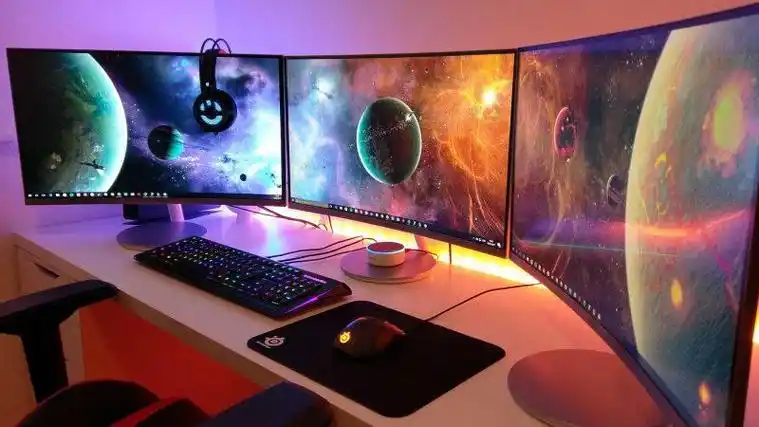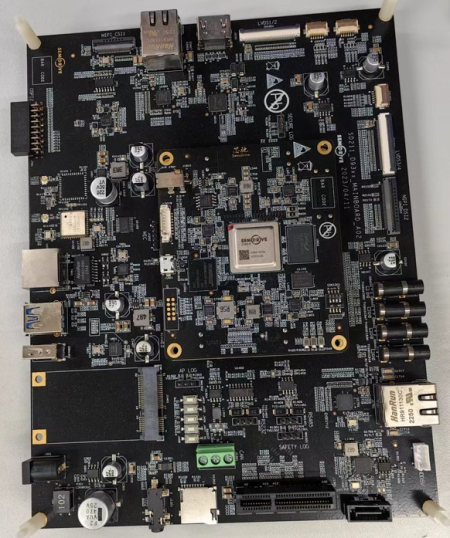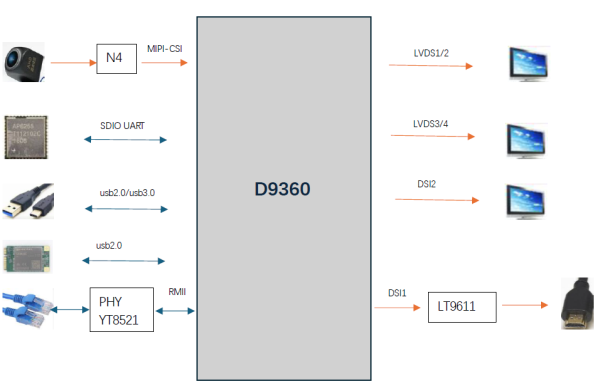Multi-screen display solution based on SemiDrive D9360
Solution introduction
D9360 is currently one of the chips with the strongest display capabilities in the SemiDrive D series industrial core, supporting LVDS x4 and MIPI-DSI x2 displays. Integrated ARM® Cortex-A55 high-performance CPU and ARM® Cortex-R5 real-time CPU, including 3D GPU and H.264 video codec.
In addition, the processor also integrates PCIe3.0, USB3.0, Gigabit Ethernet, CAN-FD, UART, SPI and other rich peripheral interfaces, which can be seamlessly applied to various industrial applications at the lowest cost.
Supports linux, android, freeRTOS, and multiple systems on one core.
Scenario application diagram

Development board display

Scheme diagram

Core technical advantages
DP - display processor, supports 4-layer synthesis, scaling, rotation and other functions
DC - display controller, supports 2-layer hardware layer (DC1/2 supports direct connection of 2-layer DP (DP1/2), DC3/4 supports direct connection of 1-layer DP (DP3))
D9360 has 3 DC controllers, which can control 3 different screens and display different contents.
In SemiDrive's standard SDK, DC is controlled by R5, and the corresponding LCM driver is also implemented on R5. The advantage of this is
1. It is very convenient and direct to implement fast multimedia applications, such as startup animation, startup audio, etc., and then open the DP layer after Linux/Android startup is completed;
2. Functional safety
Solution specifications
LVDS:
LVDS-1/2 can be combined into Dual-Channel LVDS Mode
LVDS-3/4 can be combined into Dual-Channel LVDS Mode
LVDS-1/2/3/4 can be combined into Quad-Channel LVDS
The maximum resolution in single LVDS mode is 1920x1080@60Hz
The maximum resolution of dual LVDS mode is 2560x1440@60Hz
The maximum resolution of quad LVDS mode is 3840x2160@60Hz
MIPI-DSI:
4-lane D-PHY 1.2
Maximum resolution is 2560x1440@60Hz
DSI can be converted to HDMI output via LT9611
